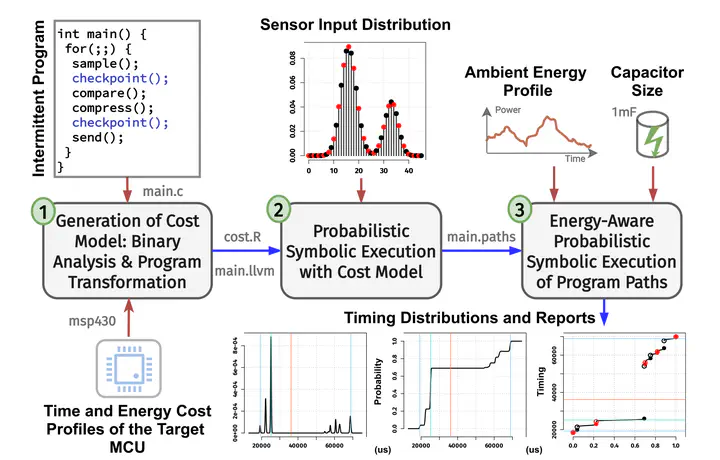
Abstract
Energy harvesting battery-free embedded devices rely only on ambient energy harvesting that enables stand-alone and sustainable IoT applications. These devices execute programs when the harvested ambient energy in their energy reservoir is sufficient to operate and stop execution abruptly (and start charging) otherwise. These intermittent programs have varying timing behavior under different energy conditions, hardware configurations, and program structures. This article presents Energy-aware Timing Analysis of intermittent Programs (ETAP), a probabilistic symbolic execution approach that analyzes the timing and energy behavior of intermittent programs at compile time. ETAP symbolically executes the given program while taking time and energy cost models for ambient energy and dynamic energy consumption into account. We evaluate ETAP by comparing the compile-time analysis results of our benchmark codes and real-world application with the results of their executions on real hardware. Our evaluation shows that ETAP’s prediction error rate is between 0.0076% and 10.8%, and it speeds up the timing analysis by at least two orders of magnitude compared to manual testing.